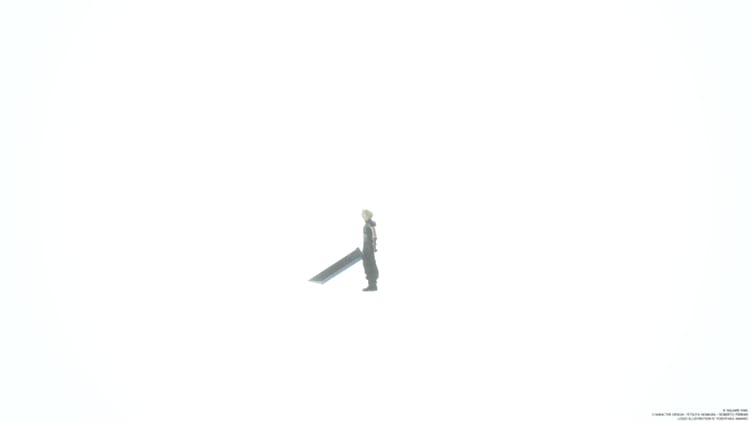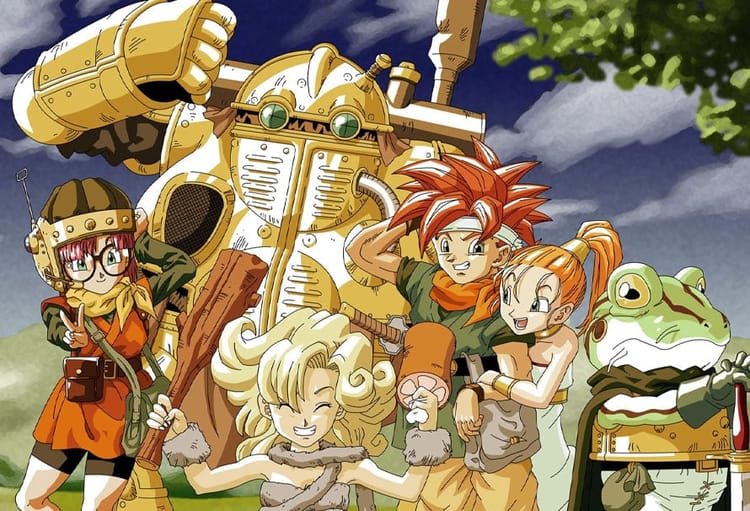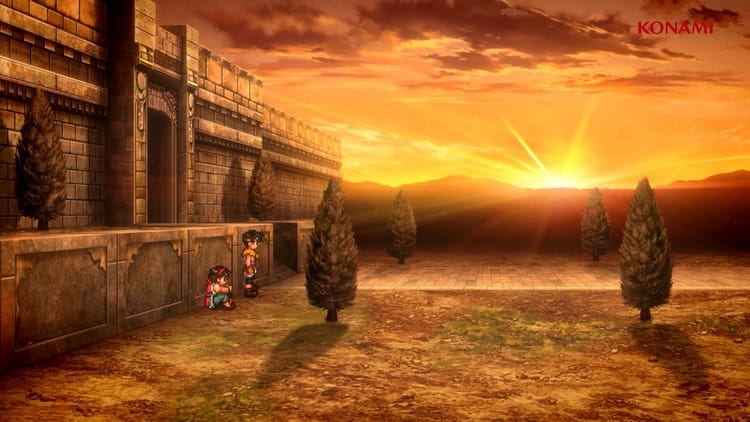Astrolabe Gaiden: "Well, somebody has to do this!" The story of CoNZealand Fringe by Adri Joy
One glance at the "Best Related Work" ballot for this year's Hugo Awards reveals a rich collection of voices from the SFF community. Chief among those are two genre conventions: FIYAHCON, an online convention "centering the perspectives and celebrating the contributions of BIPOC in speculative fiction," and CoNZealand Fringe, an offshoot of 2020's WorldCon. FIYAHCON is a rising star in the convention scene, and CoNZealand is a response to what many community members considered gaps in the official CoNZealand programming.
(FIYAHCON's own fringe equivalent has recently been rebranded as BonFIYAH, and has been welcomed by the larger conference as a partner in boosting BIPOC stories and voices in the SFF community. "In short, we were given a seat by the fire," wrote BonFIYAH coordinators, Iori Kusano and Vida Cruz. "FIYAHCON did everything in its power to ensure that we were not Fringe but a mainstage event in our own right.")
ConZealand Fringe was developed by Claire Rousseau, Adri Joy, C @ The Middle Shelf, Alasdair Stuart, Marguerite Kenner, Cheryl Morgan, and Cassie Hart. To help tell its story, I invited Adri Joy to write about her experience, the importance of grassroots fan movements, and the effort they undertook to transcribe over 150,000 words worth of panels.
Editor's note: The opinions below belong to Adri Joy, and don't necessarily reflect hose of the CoNZealand Fringe team or its individual members.

"Well, somebody has to do this!"
I wasn't expecting to have my first science fiction programming experience in the middle of a pandemic, putting together virtual panels from my parents' spare room over the space of an intense two weeks where I was supposed to be having a relaxing, if nocturnal, time at CoNZealand. But, as anyone who has taken on a big volunteer project knows, sometimes these things call out to us, hitting on some combination of responsibility and desire for self-improvement and that resigned sense of "well, somebody has to do this," and the next thing you know... boom. Forget sleep: you're doing a fringe.
The fringe in question was CoNZealand Fringe, a series of 15 panels hosted outside core programming hours during the week of 2020's virtual Worldcon. Having prepared to host Worldcon for the first time, the Aotearoa New Zealand science fiction community and the staff of CoNZealand got handed a terrible deal by the pandemic, getting plunged in a matter of months from organising the in-person event everyone expected, to figuring out what could be done in a virtual space instead. By the time Worldcon rolled around in the last week of July, several conventions had paved the way for virtual engagement—from pop-up one day events like Wifi Scifi and Quarancon, to the community-Discord-focused online Wiscon, to Flights of Foundry's impressive online event and debrief package—but there was still no clear blueprint for a successful online event, and only months to set something up. It was a huge challenge, one which the CoNZealand team rose to in order to put on a large-scale multi day convention filled with interesting panels and events, mirroring the experience of an in-person Worldcon as far as possible.
But, of course, there were gaps. The CoNZealand Fringe project stemmed initially from discussions about lack of diversity on the convention's panels after the announcement of the convention programming, and the lack of inclusion of that year's Hugo Award finalists, with evidence suggesting that finalists of colour were disproportionately underrepresented on the schedule. Through the efforts of finalists themselves, along with convention volunteers (who had been tireless in championing inclusion of diverse panelists and a wide range of New Zealand voices with less success than one would have hoped before the Programme announcement), CoNZealand took last-minute steps to address this issue, resulting a stronger and more inclusive Programme for the convention. In parallel with this process, however, a team had already mobilised as a potential contingency for providing some form of representative programming regardless of the con's response.
With CoNZealand stepping up to the plate on diversity, our mostly European-based team quickly realised that there was still potential for unofficial, free programming to reach a wider range of fans outside of core programming hours. An alternative stream would enable fans in European and African timezones and those without CoNZealand memberships another option to attend Worldcon-style panels. Pitching in to extend the community's reach during the week when interest would be highest, taking advantage of the all-virtual event to make something accessible to as many people as possible? It felt, quite simply, like an obviously right thing to do.
So, we did it.
With the idea spearheaded by Claire Rousseau, the first Booktuber—that's the community of book reviewers and fans on YouTube—to make it to the Best Fancast ballot for her (excellent) channel, it was an obvious choice for CoNZealand Fringe to be hosted on BookTube, with 11 different channels hosting various Fringe streams and panels dedicated to BookTube itself and to popular BookTube video topics. Our panels were built from the premise that fans of colour, queer fans, fans with disabilities and other marginalised folks have vital things to say about every fandom topic, and given the genesis of the Fringe concept, ensuring a diversity of expertise was a fundamental part of our responsibilities. We had a raucous discussion on "problematic faves," a deep dive into genre podcasting that overran by 30 minutes because the panelists had so much to say (another benefit of the BookTube hosting was that nobody could kick us out of panel rooms!), and panels predicting future genre classics and talking about favourite media of 2020 which were bursting with incredible recommendations. The game worldbuilding panel offered a thoughtful discussion on "representation" in video and tabletop games and why, when there are video games that allow you to define the size of your player character's butthole, representation of Black skin tones, Afro-textured hair and visible disabilities are still incredibly limited. We had experts and authors discuss the process of sensitivity reading in publishing and celebrate the variety of genre bending fiction that's currently out there and the role that genre boxes play in our reading. We even had the panel of my heart: a fanzine discussion entirely focused on the world of online blogging, newsletters and zines, which did not even once have to reopen the long-ago settled question of whether a genre fanzine can be online. Truly, a magical point to reach in 2020.
(By the way, the best part of YouTube hosting? Every one of those panels is still available to watch online, and will be indefinitely. I will forgive you if you stop reading right now and go check those out!)
Not everything went right. In particular, hosting panels with open chats via YouTube meant that one of our panels had a moderation incident, in which we weren't able to prevent abusive messages being sent to participants in chat. We very quickly tightened our processes around chat moderation and briefing YouTube hosts to ensure that the specific kind of incident wouldn't be possible again while still maintaining our free, open streams on the channels scheduled, but it was still a failure to the participants and viewers of that panel and one we should have been more prepared for given the known vulnerabilities of open events.
We also weren't able to extend invitations to everyone we wanted to, and given more time we would have been able to build an event that represented even more facets of the genre we know and love.
Finally, for a small set of fans, the name "CoNZealand Fringe" caused controversy because it was felt it implied disrespect to the convention itself, or misuse of its brand. While the name was selected in the tradition of Edinburgh fringe festival and other fringe events, and some were unlikely to view fringe content in a positive light regardless of the name, the subsequent focus in certain circles over whether "CoNZealand Fringe" could expect legal action was, at best, a distraction from the content and purpose of the programme itself, and might have been avoided.
In short, the intense period of time we spent bringing things together meant the choices we made reflect our own biases and limitations, with limited time for taking stock and managing risks in advance. Acknowledging those limitations doesn't make me less proud of what we did achieve, but nor do our achievements cancel out our mistakes—and, with more time, we could have done better.
What CoNZealand Fringe clarified for me, personally, is the level of responsibility that goes into volunteering, and the responsibilities that we all have to each other to ensure the actions we take, and the things we build, leave this community a little better than when we found it. Sometimes, when we bake those responsibilities in from the start, it takes almost no extra effort at all: ensuring that panels were not all white, or all one gender, or that prospective panelists weren't invited onto events while observing Shabbat, was relatively straightforward for us because those expectations were built into our systems (such as they were) from the ground up.
But sometimes those responsibilities involve going beyond what you thought you signed up for. After pulling sixteen hour days during CoNZealand week to bring fringe together, I took on responsibility for coordinating the transcription for all our panels among our (AMAZING) team of volunteers.
While most of our panels had reasonably good auto-generated captions from YouTube, having transcripts would ensure that our panels were accessible to anyone who couldn't watch the original, or preferred a text-based version. Transcribing is also very labour-intensive and, for a zero-budget event, difficult to resource. What I had hoped would be a few weeks receiving, proofreading and processing drafts turned into over half a year before we were able to put the transcripts up for viewing (all are now hosted on the fanzine I co-edit, Nerds of a Feather, Flock Together).
And, honestly? Much of this six month process was spent feeling overwhelmed, lost and being pulled in other directions without doing any work on the transcripts, all the while with the sense of responsibility eating at the back of my mind. At several points, I almost convinced myself that putting the transcripts up late would be more of an embarrassing failure than simply never finishing them and letting the commitment go. But finally, at the start of 2021, I was able to find enough time in my schedule to put that final administrative push in, with our team coordinating the last transcriber efforts we needed to get us over the finish line. Now 160,000 words of transcribed panel are now available alongside their video counterparts—all for free, all indefinitely.
The moral of this story is not, in fact, "volunteering is hard, be prepared to suck it up"—even though both of those things are sometimes true. For most of us, most of the time, the contributions we make to genre aren't anywhere near as intensive as putting together a last-minute Fringe, and doing this one took me to the limits of my own capacity—genre event organising is something I don't intend to go back to until next year at the earliest*, and I am in awe of people who make these sorts of things happen more consistently.
Regardless of the level of work we're putting in, though, I think two things are true: first, that our responsibility to care about each other, and create things that are accessible and don't perpetuate shitty biases, and to acknowledge and learn from our mistakes, is always there. Yes, even when you're doing something very challenging that you're not getting paid for. Yes, even when it goes beyond what you thought you originally signed up for. Yes, even when that responsibility feels impossible and even thinking about it hurts. But the second, even more important thing? Nothing we take on in service to this community needs to be done alone.
I've been incredibly lucky to work alongside Claire, C, Marguerite, Alasdair, Cheryl and Cassie, as well as our amazing panelists, hosts and helpers, along every step of the Fringe journey, and every time I've felt overwhelmed by my personal workload, it's been solved by returning to the group, asking for more support and triaging the most important tasks to achieve our goals. Too often, we assume that not living up to our responsibilities means we enter a state of shame and failure that we can't get out of, but while sometimes our mistakes are too big to set aside, more often the things we get wrong are just... data points. All any of us can do is learn to do better as we go along.
I'm hopeful for Fringe events, especially as we go back to in-person conventions and lose the relative global accessibility that virtual events permitted (timezones aside). It's amazing to see FIYAHCON's out-of-hours programming, now called BonFIYAH, become an integrated part of their convention and I'm excited to see what their team do this year after a brilliant FIYAHCON Fringe last year. There's also amazing potential for Fringe-style programming to redefine the expectations over what makes Worldcon "global", especially as Discon has only provided a minimal commitment to virtual programming thus far, and the in-person convention is likely to take place while international travel is still very limited. If nothing else, though, I hope the genre world is a slightly better place because it has those fifteen panels in it, full of excellent people having fun, thoughtful conversations that are available to anyone with access to Youtube and Blogger. If we succeeded at that, I'll consider my time volunteering for CoNZealand Fringe to be time extremely well spent.
*Then again, I didn't think I was going to do any organising in 2020 either and look where we are...
Quest Markers
(Quest Markers is a collection of the coolest stuff I’ve read around the web lately.)
- FIYAHCON “Fringe” is now “BonFIYAH!”
- YouTube: SFF Awards in the 2010s: A Retrospective - Panel - CoNZealand Fringe
- Nerds of a Feather
- CoNZealand Fringe Transcript: Sensitivity Reading: What is it, who does it, who needs it?
Support Astrolabe
There are lots of ways to support Astrolabe and my other work. Check ‘em out!
Keep in Touch
Enjoy Astrolabe? Want more SFF and retro gaming goodies? You can find me on Twitter and my website.
Credits
Astrolabe banner photo by Shot by Cerqueira on Unsplash





Member discussion